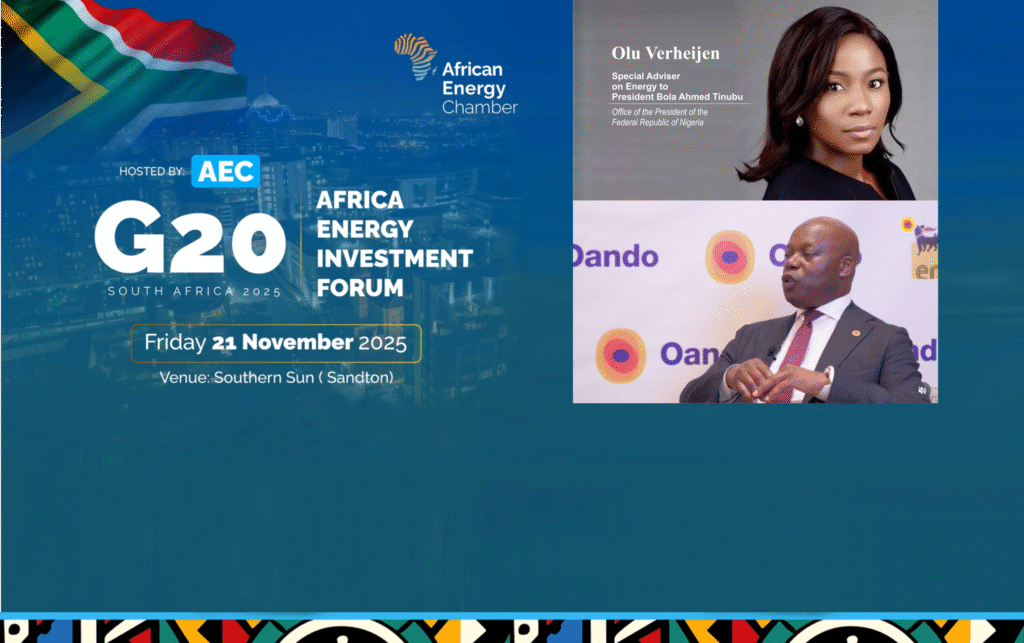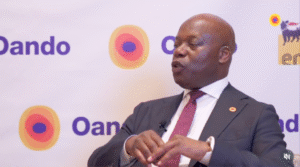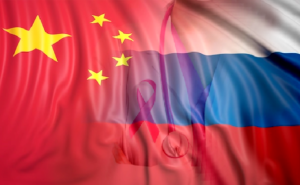Nigeria’s Olu Verheijen and Wale Tinubu, Group Chief Executive Officer of Oando PLC Joins G20 Africa Energy Forum, Redefining Nigerian’s Global Energy Role

As global leaders prepare for the G20 Africa Energy Investment Forum in Johannesburg on November 21, Nigeria is emerging as a case study in how energy reform can shape not only markets but also societies. At the forefront of this evolution is Olu Verheijen, the Special Adviser to President Bola Tinubu on Energy, who will represent Nigeria at the forum to share how policy shifts are turning the country’s natural wealth into a catalyst for growth, innovation, and inclusion.
Verheijen’s presence at the forum symbolizes Nigeria’s renewed ambition to present itself not just as an oil producer, but as an energy nation. Through sweeping reforms from the Petroleum Industry Act (PIA) of 2021 to the Upstream Petroleum Operations (Cost Efficiency Incentives) Order introduced this year, Nigeria is repositioning its industry to attract investors while empowering its people.

The impact has been tangible. Since 2021, over $17 billion in foreign investment has flowed into the oil and gas sector, fueling mega-projects from ExxonMobil, Shell, and TotalEnergies. This renewed investors’ confidence indicates more fiscal recovery and represents a political and social realignment, where transparent governance and performance-driven incentives are beginning to rebuild trust, in a country whose economy has been vulnerable to crude price swings and corruption.
But the story runs deeper than the numbers. Nigeria’s energy reforms ripple through homes, communities, and boardrooms. Lower operational costs mean more sustainable projects, local job creation and expanded opportunities for indigenous firms. In rural areas, initiatives under the government’s Vision 30:30:30 that is targeting 30 GW of grid power by 2030, with 30% from renewables, promise to light up homes and schools that have long relied on generators and firewood. Energy reform to millions of Nigerian families, is not a policy discussion but the difference between isolation and inclusion.
The shift signals a new narrative of African agency in global energy dialogue. In decades, Africa’s energy potential was defined by external actors. Now, figures like Olu Verheijen, Special Adviser to the Nigerian President and Wale Tinubu, Group Chief Executive Officer of Oando PLC, are reframing that story; and amalgamating business pragmatism with a belief in self-determination. Wale, who will also speak at the forum, has transformed Oando from a local downstream player into one of Africa’s largest integrated energy companies, recently expanding into mining and clean energy. His leadership features the rise of homegrown African corporations shaping global agendas.

From a business standpoint, Nigeria’s approach reflects a delicate balance, maintaining its oil and gas backbone while investing in the future. The country’s plan to grow gas output to 12 billion cubic feet per day by 2030 and attract $60 billion in investment showcases an awareness that energy security and transition are not opposing goals. Rather, they are the twin engines of national growth and regional influence.
Politically, these participations will bolster President Tinubu’s reform agenda, reinforcing his administration’s image as one willing to make difficult structural decisions for long-term gain.
However, some perceived challenges arrest concerns. Nigeria must ensure that benefits from this structural reform in the energy sector, flows beyond elite circles, and address the disparities that have long shadowed its resource wealth. The success of these reforms will depend on whether they translate into visible improvements in power supply, employment and community development.
![]()
As Verheijen and Wale join global leaders in Johannesburg, the stakes would transcend policy papers and investment pledges. The G20 Africa Energy Investment Forum represents a stage where Africa’s voice in the global energy conversation grows louder, more confident and more united. In reference to Nigeria, it will be a moment to demonstrate that reforms can marry profit with purpose, building the future of African energy on resources, strength, vision and shared prosperity.






